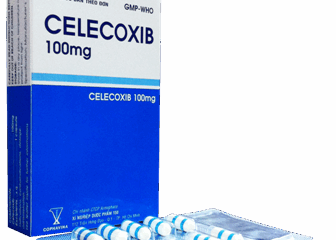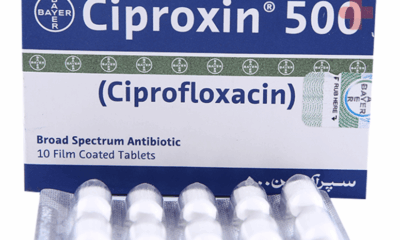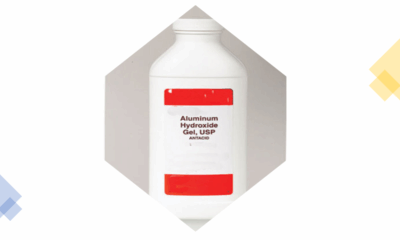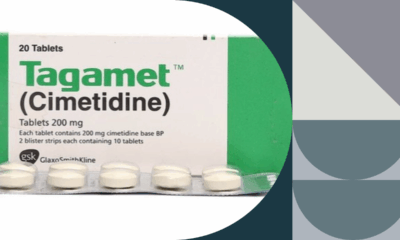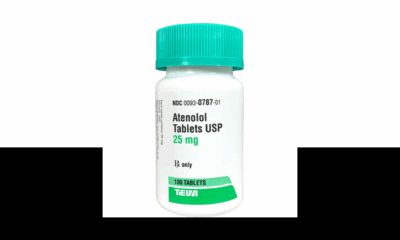Drug Study
CLARITHROMYCIN (BIAXIN)
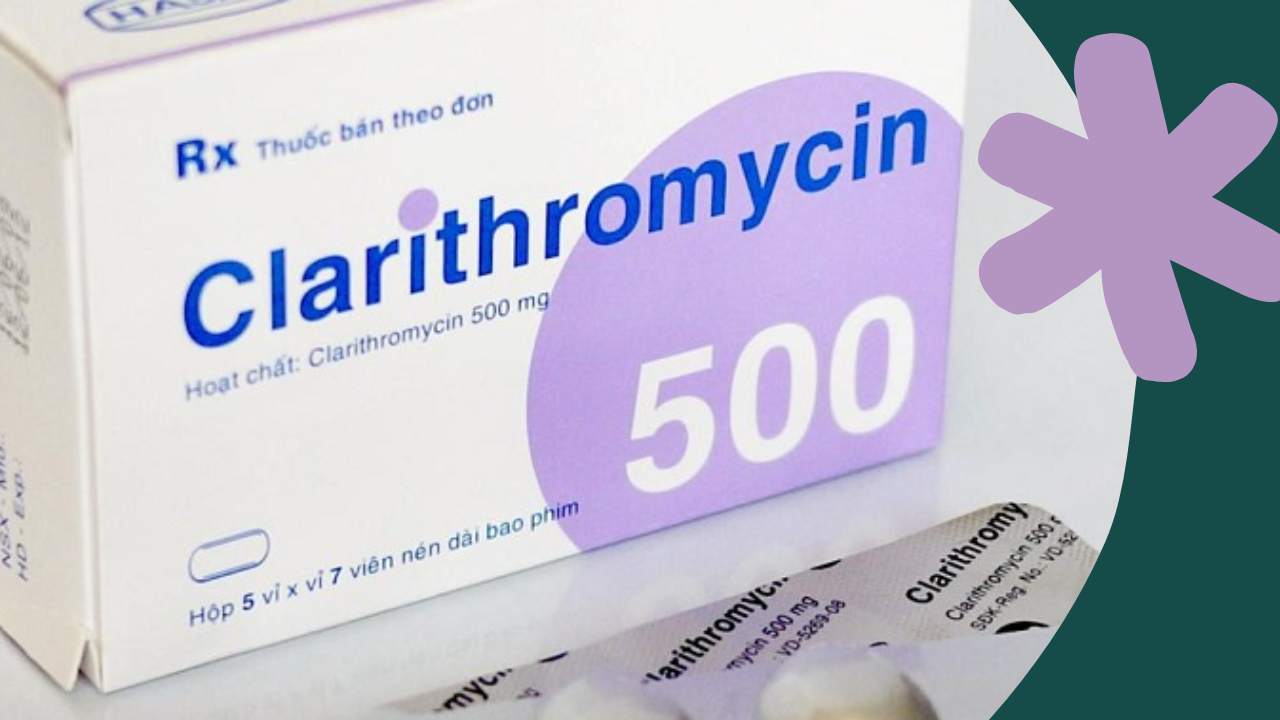
Clarithromycin (Biaxin) is a macrolide antibiotic.
Generic Name: clarithromycin
Brand Name
- Biaxin
- Biaxin XL
Drug Class
- Macrolide antibiotic
- Pregnancy Category C
Therapeutic actions
Inhibits protein synthesis in susceptible bacteria, causing cell death.
Indications
- Treatment of URIs caused by Streptococcus pyogenes, S. pneumoniae
- Treatment of LRIs caused by Mycoplasma pneumoniae, S. pneumoniae, Haemophilus influenzae, Moraxella catarrhalis
- Treatment of skin and skin-structure infections caused by Staphylococcus aureus, S. pyogenes
- Treatment of disseminated mycobacterial infections due to Myobacterium avium and M. intracellular
- Treatment of active duodenal ulcer associated with Helicobacter pylori in combination with proton pump inhibitor
- Treatment of acute otitis media, acute maxillary sinusitis due to H. influenzae, M. cararrhalis, S. pneumoniae
- Treatment of mild to moderate community-acquired pneumonia in adults
Contraindications and Cautions
- Contraindicated with hypersensitivity to clarithromycin, erythromycin, or any macrolide antibiotic.
- Use cautiously with colitis, hepatic or renal impairment, pregnancy, lactation.
Available forms
Tablets—250, 500 mg; granules for suspension—125, 250 mg/5 mL; ER tablets–500 mg
Dosages
ADULTS
- Pharyngitis, tonsillitis; pneumonia due to S. pneumoniae, M. pneumoniae; skin or skin-structure infections; LRIs due to S. pneumoniae, M. catarrhalis: 250 mg PO q 12 hr for 7–14 days.
- Acute maxillary sinusitis, LRI caused by H. influenzae: 500 mg PO q 12 hr for 7–14 days.
- Mycobacterial infections: 500 mg PO bid.
- Treatment of duodenal ulcers: 500 mg PO tid plus omeprazole 40 mg PO q AM for 14 days, then omeprazole 20 mg PO q morning for 14 days.
- Treatment of community-acquired pneumonia: 250 mg PO q 12 hr for 7–14 days or 1,000 mg PO of ER tablet q 24 hr for 7 days.
PEDIATRIC PATIENTS
Usual dosage, 15 mg/kg/day PO q 12 hr for 10 days.
Mycobacterial infections: 7.5 mg/kg PO bid.
GERIATRIC PATIENTS OR PATIENTS WITH IMPAIRED RENAL FUNCTION
Decrease dosage or prolong dosing intervals as appropriate.
Adverse effects
- CNS: Dizziness, headache, vertigo, somnolence, fatigue
- GI: Diarrhea, abdominal pain, nausea, dyspepsia, flatulence, vomiting, melena, pseudomembranous colitis
- Other: Superinfections, increased PT, decreased WBC
Interactions
- Drug-drug: Increased serum levels and effects of carbamazepine, theophylline, lovastatin, phenytoin
- Drug-food: Food decreases the rate of absorption of clarithromycin but does not alter effectiveness
- Decreased metabolism and risk of toxic effects if combined with grapefruit juice; avoid this combination.
Patient Education
- Take drug with food if GI effects occur. Take the full course of therapy. Do not drink grapefruit juice while taking this drug.
- Shake suspension before use; do not refrigerate; do not cut, crush, or chew ER tablets; swallow them whole.
- You may experience these side effects: Stomach cramping, discomfort, diarrhoea; fatigue, headache (medication may be ordered); additional infections in the mouth or vagina (consult with care provider for treatment).
- Report severe or watery diarrhoea, severe nausea or vomiting, rash or itching, mouth sores, vaginal sores.
Discover more from Nursing In Ghana
Subscribe to get the latest posts sent to your email.
Drug Study
Celecoxib (Celebrex)
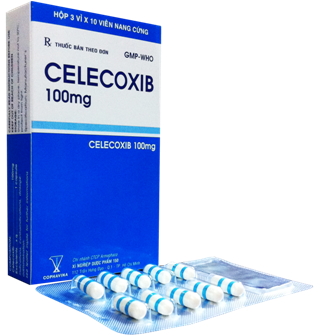
Celecoxib (Celebrex) is a non-opioid analgesic used for the management of acute pain and acute and long-term treatment of signs and symptoms of rheumatoid arthritis and osteoarthritis
Generic Name
celecoxib
(sell ah cocks’ ib)
Brand Name
Celebrex
Drug classes
- NSAID
- Analgesic (nonopioid)
- Specific COX-2 enzyme blocker
Therapeutic actions
Analgesic and anti-inflammatory activities related to inhibition of the COX-2 enzyme, which is activated in inflammation to cause the signs and symptoms associated with inflammation; does not affect the COX-1 enzyme, which protects the lining of the GI tract and has blood clotting and renal functions.
Indications
- Acute and long-term treatment of signs and symptoms of rheumatoid arthritis and osteoarthritis
- Reduction of the number of colorectal polyps in familial adenomatous polyposis (FAP)
- Management of acute pain
- Treatment of primary dysmenorrhea
Contraindications and cautions
- Contraindicated with allergies to sulfonamides, celecoxib, NSAIDs, or aspirin; significant renal impairment; pregnancy (third trimester); lactation.
- Use cautiously with impaired hearing, hepatic, and CV conditions.
Available forms
Capsules—100, 200 mg
Dosages
ADULTS
- Initially, 100 mg PO bid; may increase to 200 mg/day PO bid as needed.
- Acute pain, dysmenorrhea: 400 mg, then 200 mg PO bid.
- FAP: 400 mg PO bid.
PEDIATRIC PATIENTS
Safety and efficacy have not been established.
PATIENTS WITH HEPATIC IMPAIRMENT
Reduce dosage by 50%.
Adverse effects
- CNS: Headache, dizziness, somnolence, insomnia, fatigue, tiredness, dizziness, tinnitus, ophthamologic effects
- Dermatologic: Rash, pruritus, sweating, dry mucous membranes, stomatitis
- GI: Nausea, abdominal pain, dyspepsia, flatulence, GI bleed
- Hematologic: Neutropenia, eosinophilia, leukopenia, pancytopenia, thrombocytopenia, agranulocytosis, granulocytopenia, aplastic anemia, decreased hemoglobin or hematocrit, bone marrow depression,menorrhagia
- Other: Peripheral edema, anaphylactoid reactions to anaphylactic shock.
Interactions
Drug-drug
- Increased risk of bleeding if taken concurrently with warfarin. Monitor patient closely and reduce warfarin dose as appropriate
- Increased lithium levels and toxicity
- Increased risk of GI bleeding with long-term alcohol use, smoking
Nursing considerations
Name confusion has occurred between Celebrex (celecoxib), Celexa (citalopram), Xanax (alprazolam), and Cerebyx (fosphenytoin); use caution.
Interventions
- Administer drug with food or after meals if GI upset occurs.
- Establish safety measures if CNS, visual disturbances occur.
- Arrange for periodic ophthalmologic examination during long-term therapy.
- WARNING: If overdose occurs, institute emergency procedures—gastric lavage, induction of emesis, supportive therapy.
- Provide further comfort measures to reduce pain (eg, positioning, environmental control), and to reduce inflammation (eg, warmth, positioning, rest).
Patient teaching points
- Take drug with food or meals if GI upset occurs.
- Take only the prescribed dosage.
- You may experience these side effects: Dizziness, drowsiness (avoid driving or the use of dangerous machinery while using this drug).
- Report sore throat, fever, rash, itching, weight gain, swelling in ankles or fingers; changes in vision.
Discover more from Nursing In Ghana
Subscribe to get the latest posts sent to your email.
Drug Study
Ciprofloxacin (Cipro)
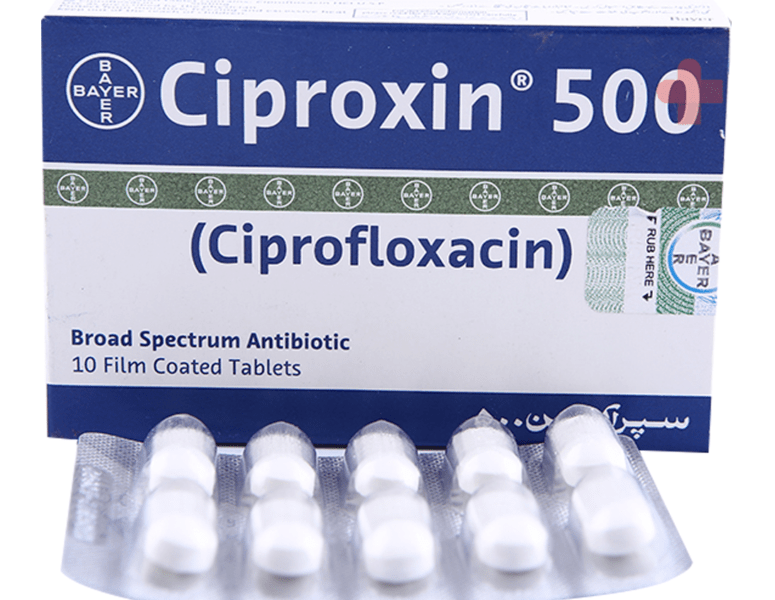
Ciprofloxacin (Cipro) is a fluoroquinolone used for the treatment of infections caused by susceptible gram-negative bacteria, including E. coli, P. mirabilis, K. pneumoniae, Enterobacter cloacae, P. vulgaris, P. rettgeri, M. morganii, P. aeruginosa,Citrobacter freundii, S. aureus, S. epidermidis, group D streptococci.
Indications
- For the treatment of infections caused by susceptible gram-negative bacteria, including E. coli, P. mirabilis, K. pneumoniae, Enterobacter cloacae, P. vulgaris, P. rettgeri, M. morganii, P. aeruginosa,Citrobacter freundii, S. aureus, S. epidermidis, group D streptococci
- Otic: Treatment of acute otitis externa
- Treatment of chronic bacterial prostatitis
- IV: Treatment of nosocomial pneumonia caused by Haemophilus influenzae, K. pneumoniae
- Oral: Typhoid fever
- Oral: STDs caused by N. gonorrheae
Contraindications and cautions
- Contraindicated with allergy to ciprofloxacin, norfloxacin or other fluoroquinolones, pregnancy, lactation.
- Use cautiously with renal dysfunction, seizures, tendinitis or tendon rupture associated with fluoroquinolone use
Dosages
ADULTS
- Uncomplicated UTIs: 100–250 mg PO q 12 hr for 3 days or 500 mg PO daily (ER tablets) for 3 days.
- Mild to moderate UTIs: 250 mg PO q 12 hr for 7–14 days or 200 mg IV q 12 hr for 7–14 days.
- Complicated UTIs: 500 mg bid PO q 12 hr for 7–14 days or 400 mg IV q 12 hr or 1,000 mg (ER tablets) PO daily for 7–14 days.
- Chronic bacterial prostatitis: 500 mg PO q 12 hr for 28 days or 400 mg IV q 12 hr for 28 days.
- Infectious diarrhea: 500 mg q 12 hr PO for 5–7 days.
- Anthrax postexposure: 500 mg PO q 12 hr for 60 days or 400 mg IV q 12 hr for 60 days.
- Respiratory infections 500–750 mg PO or 400 mg IV q 12 hr for 7–14 days.
- Acute sinusitis: 500 mg PO q 12 hr or 400 mg IV q 12 hr for 10 days.
- Acute uncomplicated pyelonephritis: 1,000 mg ER tablets PO daily for 7–14 days.
- Bone, joint, skin infections: 500–750 mg PO or 400 mg IV q 12 hr for 4–6 wk.
- Nosocomial pneumonia: 400 mg IV q 8 hr.
- Ophthalmic infections caused by susceptible organisms not responsive to other therapy: 1 or 2 drops per eye daily or bid or 1/2-inch ribbon of ointment into conjunctival sac tid on first 2 days, then apply 1/2-inch ribbon bid for next 5 days.
- Acute otitis externa: 4 drops in infected ear, tid–qid.
Adverse effects
- CNS: Headache, dizziness, insomnia, fatigue, somnolence, depression, blurred vision
- CV: Arrhythmias, hypotension, angina
- EENT: Dry eye, eye pain, keratopathy
- GI: Nausea, vomiting, dry mouth, diarrhea, abdominal pain
- Hematologic: Elevated BUN, AST, ALT, serum creatinine and alkaline phosphatase; decreased WBC, neutrophil count, Hct
- Other: Fever, rash
Nursing Assessment
- History: Allergy to ciprofloxacin, norfloxacin or other quinolones; renal dysfunction; seizures; lactation
- Physical: Skin color, lesions; orientation, reflexes, affect; mucous membranes, bowel sounds; renal and liver function tests
Nursing Interventions
- Arrange for culture and sensitivity tests before beginning therapy.
- Continue therapy for 2 days after signs and symptoms of infection are gone.
- Ensure that patient is well hydrated.
- Give antacids at least 2 hrs after dosing.
- Monitor clinical response; if no improvement is seen or a relapse occurs, repeat culture and sensitivity.
- Encourage patient to complete full course of therapy.
Patient Education
- Educate patient not to touch tip of eye ointment or solution for this may contaminate the product.
- Encourage patient to drink plenty of fluids while taking this drug.
- Educate patient on these side effects: Nausea, vomiting, abdominal pain (eat frequent small meals); diarrhoea or constipation; drowsiness, blurring of vision, dizziness (observe caution when driving or using dangerous equipment).
- Encourage patient to report rash, visual changes, severe GI problems, weakness, tremors.
Discover more from Nursing In Ghana
Subscribe to get the latest posts sent to your email.
Drug Study
Aluminum Hydroxide (Amphogel)
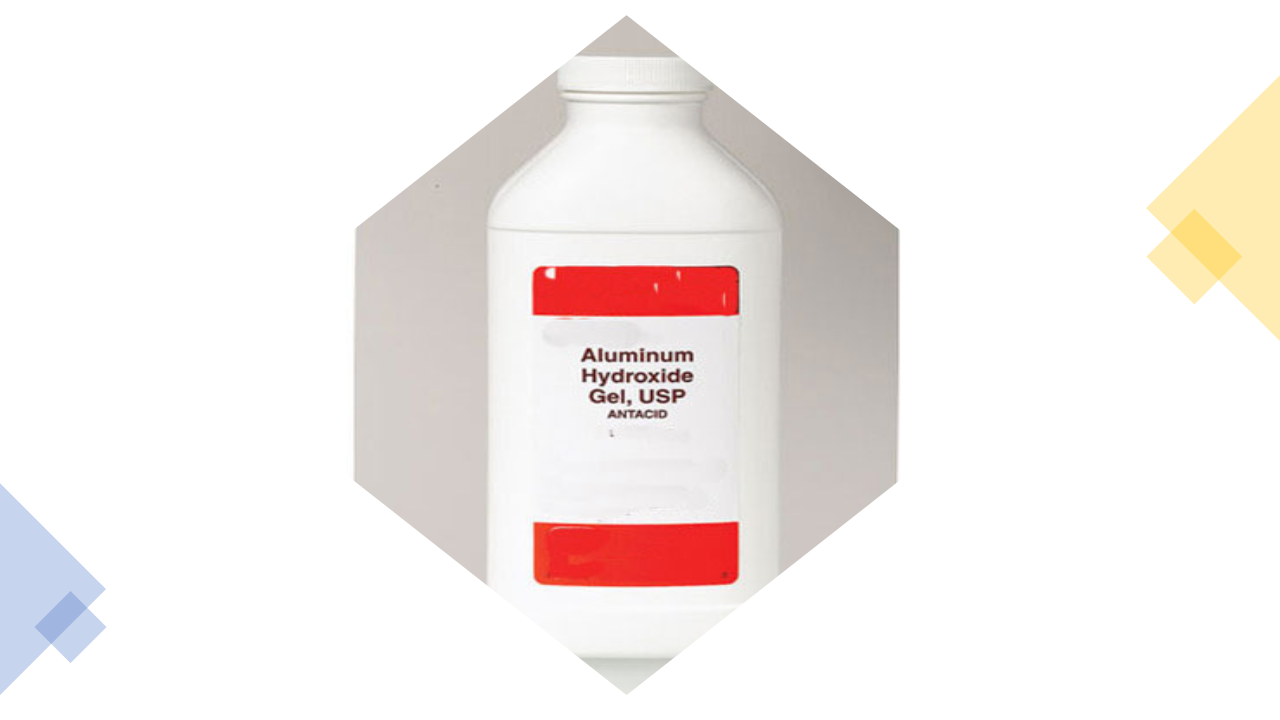
Generic Name: aluminum hydroxide
Brand Name: Alu-Cap, Alugel, Alu-Tab, Amphogel, Dialume
Classifications: gastrointestinal agent; antacid; adsorbent
Actions
Nonsystemic antacid with moderate neutralizing action. Decreases rate of gastric emptying and has demulcent, adsorbent, and mild astringent properties. Reduces acid concentration and pepsin activity by raising pH of gastric and intraesophageal secretions.
Therapeutic Effects
Reduces gastric acidity by neutralizing the stomach acid content. Aluminum hydroxide lowers serum phosphate by binding dietary phosphate to form insoluble aluminum phosphate, which is excreted in feces.
Uses
Symptomatic relief of gastric hyperacidity associated with gastritis, esophageal reflux, and hiatal hernia; adjunct in treatment of gastric and duodenal ulcer. More commonly used in combination with other antacids. Aluminum hydroxide is used primarily in conjunction with a low phosphate diet to reduce hyperphosphatemia in patients with renal insufficiency and for prophylaxis and treatment of phosphatic renal calculi.
Cautious Use
Renal impairment; gastric outlet obstruction; older adults; decreased bowel activity (e.g., patients receiving anticholinergic, antidiarrheal, or antispasmodic agents); patients who are dehydrated or on fluid restriction.
Dosage
Adult: PO 600 mg t.i.d. or q.i.d.
Administration
Oral
- Tablet must be chewed until it is thoroughly wetted before swallowing.
- Note for antacid use: Follow well-chewed tablet with one-half glass of water or milk; follow liquid preparation (suspension) with water to ensure passage into stomach. For phosphate lowering: follow tablet, capsule, or suspension with full glass of water or fruit juice.
- Store between 15°–30° C in tightly closed container.
Adverse Effects
GI: Constipation, fecal impaction, intestinal obstruction.
Interactions
Drug: Aluminum will decrease absorption of chloroquine, cimetidine, ciprofloxacin, digoxin, isoniazid, iron salts, NSAIDs, norfloxacin, ofloxacin, phenytoin, phenothiazines, quinidine, tetracycline, thyroxine. Sodium polystyrene sulfonate may cause systemic alkalosis.
Nursing Considerations
Assessment & Drug Effects
- Note number and consistency of stools. Constipation is common and dose related. Intestinal obstruction from fecal concretions has to be reported.
- Lab tests: Monitor periodic serum calcium and phosphorus levels with prolonged high-dose therapy or impaired renal function.
Patient & Family Education
- Increase phosphorus in diet when taking large doses of these antacids for prolonged periods; hypophosphatemia can develop within 2 wk of continuous use of these antacids. The older adult in a poor nutritional state is at high risk.
- Antacid may cause stools to appear speckled or whitish.
- Report epigastric or abdominal pain; it is a clinical guide for adjusting dosage. Keep physician informed. Pain that persists beyond 72 h may signify serious complications.
- Seek medical help if indigestion is accompanied by shortness of breath, sweating, or chest pain, if stools are dark or tarry, or if symptoms are recurrent when taking this medication.
- Seek medical advice and supervision if self-prescribed antacid use exceeds 2 weeks
Discover more from Nursing In Ghana
Subscribe to get the latest posts sent to your email.
-
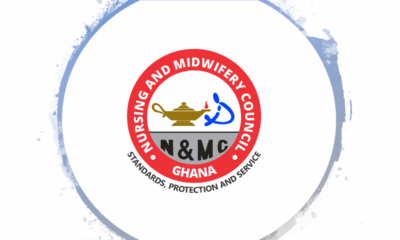
 Nursing News5 years ago
Nursing News5 years agoLIST OF ACCREDITED GOVERNMENT NURSING AND MIDWIFERY TRAINING SCHOOLS IN GHANA
-

 Nursing News3 years ago
Nursing News3 years agoNURSING ADMISSION FORMS ON SALE FOR THE 2023/2024 ACADEMIC YEAR
-

 Nursing Procedures and Skills5 years ago
Nursing Procedures and Skills5 years agoTHE NURSES PLEDGE AND THE MIDWIVE’S PRAYER
-

 Nursing Procedures and Skills5 years ago
Nursing Procedures and Skills5 years agoNURSING TRAINING ADMISSION INTERVIEW QUESTIONS
-

 Nursing News4 years ago
Nursing News4 years agoGHS INTRODUCES TWO NEW BELT COLOURS FOR TWO NEW LEVELS IN THE NURSING AND MIDWIFERY SERVICE
-

 Nursing News4 years ago
Nursing News4 years agoMOH SUSPENDS THE 2021/2022 ACADEMIC CALENDAR FOR NURSING AND MIDWIFERY SCHOOLS
-

 Notes5 years ago
Notes5 years agoCOMMON TYPES OF INTRAVENOUS (IV) FLUIDS AND THEIR USES
-

 Nursing News5 years ago
Nursing News5 years agoLIST OF PRIVATE NURSING AND MIDWIFERY TRAINING SCHOOLS (ACCREDITED)

